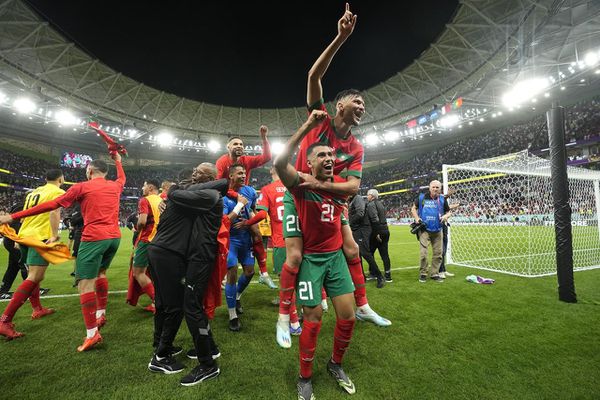MacKenzie Weegar wasn’t bitter or upset as he watched friends live out their dreams.
The Calgary Flames defenceman just hopes to experience the same feeling one day. He also knows the road leading to that moment, if it does arrive, will likely be long and winding — much like his own path.
A seventh-round pick by the Florida Panthers at the 2013 NHL draft, Weegar climbed the ranks to become an important piece of a roster that captured the Presidents’ Trophy as the league’s top regular-season club in 2021-22.
Two months later following a second-round playoff exit, he was traded to the Flames along with Jonathan Huberdeau for Matthew Tkachuk. And less than two years after that, the Panthers were hoisting the Stanley Cup.
“Happy for the city and for the team,” Weegar said of Florida’s June victory over the Edmonton Oilers. “There was no bad taste in my mouth.”
His sole focus, he insists, is squarely on eventually getting the Flames to the same spot. The landscape, however, has changed drastically since Weegar committed to Calgary on an eight-year, US$50-million contract extension in October 2022.
Weegar has watched a list that includes goaltender Jacob Markstrom, defencemen Chris Tanev, Noah Hanifin and Nikita Zadorov and forwards Elias Lindholm and Andrew Mangiapane shipped out of town since the start of last season — largely for picks, prospects and young players as part of a rebuild.
Despite that exodus, he remains committed to the Calgary project steered by general manager Craig Conroy.
“It’s easy to get out of all whack when you see guys trying to leave or wanting new contracts,” the 30-year-old from Ottawa said at last week’s NHL/NHLPA player media tour in Las Vegas. “I just focus on where I am and where I want to be, and that’s Calgary.
“I believe in this team. The city has taken me in right away. I feel like I owe it to them to stick around and grind through these years and get a Stanley Cup.”
The hard-nosed blueliner certainly knows what it is to grind.
After winning the Memorial Cup alongside Nathan MacKinnon with the Halifax Mooseheads in 2013, Weegar toiled in the ECHL and American Hockey League for three seasons before making his NHL debut late in the 2016-17 campaign with the Panthers.
He would spend the next five years in South Florida as one of the players tasked with shifting an organizational culture that had experienced little success over the previous two decades.
“There’s always going to be a piece of my heart and loyalty to that team,” Weegar said. “But now I’m in a different situation … I compete against all 32 teams, not just Florida. There’s always a chip on my shoulder every single year.”
Weegar set career highs with 20 goals — eight was the most he had ever previously registered — and 52 points in 2023-24 as part of a breakout offensive performance.
“I think my buddies cared a lot more than I did,” he said with a smile. “All I hear is, ‘fantasy, fantasy, fantasy.'”
Weegar was actually more proud of his 200 blocked shots and 194 hits as he looks to help set a new Flames’ standard alongside Huberdeau, captain Mikael Backlund, Nazem Kadri, Blake Coleman and Rasmus Andersson for a franchise expected to have its new arena in time for the 2027-28 season.
“You have to build that culture and that belief in the locker room,” said Weegar, who pointed to 22-year-old centre Connor Zary as a player set to pop. “Those young guys are going to have to come into their own and be consistent every night … they’re the next generation.”
Weegar, however, isn’t punting on 2024-25. He pointed to the NHL’s parity and the fact a couple of teams surprise every season.
It’s the same approach that took him from the ECHL a decade ago to hockey’s premier pre-season event inside a swanky hotel on Sin City’s famed strip, where he stood shoulder-to-shoulder with the game’s best.
“From the outside — media and even friends and family — the expectations are probably a bit lower,” Weegar said of Calgary’s outlook. “But there’s no reason to think that we can’t make playoffs and we can’t be a good team (with) that underdog mentality.
“You never know.”
This report by The Canadian Press was first published Sept 17, 2024.
___
Follow @JClipperton_CP on X.
